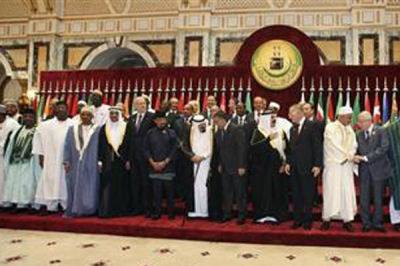LGBT groups barred from UN AIDS summit; human rights activists stage protest

A group of 51 countries including Russia and the Organization of Islamic Cooperation (OIC) has blocked 22 lesbian, gay, bisexual, and transgender (LGBT) and drug user groups from attending the United Nations (UN) summit for global AIDS that will be held next month.
According to The Guardian, the non-government organizations (NGOs) that can't attend the AIDS summit include Actwid, Colour Pink, and Esvero. The UN General Assembly High-Level Meeting on Ending AIDS, which will be held from June 8 to 10, will be led by the OIC with member countries such as Saudi Arabia, Iran, Indonesia, Sudan, and Uganda.
Egypt wrote to the General Assembly President Mogens Lykketoft to exclude 11 LGBT groups from the summit without stating any reason for its request, Reuters reported. The LGBT groups' exclusion has triggered a torrent of protests from human rights activists as well as Western countries such as the U.S., European Union (EU), and Canada.
U.S. ambassador to the United Nations, Samantha Power reportedly wrote a letter to Lykketoft in defense of the LGBT groups.
"Given that transgender people are 49 times more likely to be living with HIV than the general population, their exclusion from the high-level meeting will only impede global progress in combating the HIV/Aids pandemic," Power stated in her letter.
She also added in her letter that the UN's movement to block the NGO's participation at every negotiation in a new general assembly gathering has been observed to become more frequent and only discredits the organization.
UN officials confirmed that EU and Canada also wrote to Lykketoft to protest.
"Non-governmental organizations working on the ground to ensure that no one is left behind must have the opportunity to contribute to this important forum," read a statement released by UNAIDS.
The group implored the UN to apply its principles of inclusion, participation and dignity, and stressed that the UN should be open to all.
In its defense, Lykketoft replied in a text message to the New York Times, saying: "We have done our utmost to include as many of the NGOs as possible. Unfortunately it is not within my mandate to overrule objections by the member states or to make the objecting countries known to the public."
 Christians don't have to affirm transgenderism, but they can’t express that view at work: tribunal
Christians don't have to affirm transgenderism, but they can’t express that view at work: tribunal Archaeology discovery: Medieval Christian prayer beads found on Holy Island
Archaeology discovery: Medieval Christian prayer beads found on Holy Island Presbyterian Church in America votes to leave National Association of Evangelicals
Presbyterian Church in America votes to leave National Association of Evangelicals Over 50 killed in 'vile and satanic' attack at Nigerian church on Pentecost Sunday
Over 50 killed in 'vile and satanic' attack at Nigerian church on Pentecost Sunday Ukrainian Orthodox Church severs ties with Moscow over Patriarch Kirill's support for Putin's war
Ukrainian Orthodox Church severs ties with Moscow over Patriarch Kirill's support for Putin's war Islamic State kills 20 Nigerian Christians as revenge for US airstrike
Islamic State kills 20 Nigerian Christians as revenge for US airstrike Man who served 33 years in prison for murder leads inmates to Christ
Man who served 33 years in prison for murder leads inmates to Christ


 Nigerian student beaten to death, body burned over ‘blasphemous’ WhatsApp message
Nigerian student beaten to death, body burned over ‘blasphemous’ WhatsApp message 'A new low': World reacts after Hong Kong arrests 90-year-old Cardinal Joseph Zen
'A new low': World reacts after Hong Kong arrests 90-year-old Cardinal Joseph Zen Iran sentences Christian man to 10 years in prison for hosting house church worship gathering
Iran sentences Christian man to 10 years in prison for hosting house church worship gathering French Guyana: Pastor shot dead, church set on fire after meeting delegation of Evangelicals
French Guyana: Pastor shot dead, church set on fire after meeting delegation of Evangelicals ‘Talking Jesus’ report finds only 6% of UK adults identify as practicing Christians
‘Talking Jesus’ report finds only 6% of UK adults identify as practicing Christians Mission Eurasia ministry center blown up in Ukraine, hundreds of Bibles destroyed: 'God will provide'
Mission Eurasia ministry center blown up in Ukraine, hundreds of Bibles destroyed: 'God will provide' Church holds service for first time after ISIS desecrated it 8 years ago
Church holds service for first time after ISIS desecrated it 8 years ago Burger King apologizes for 'offensive campaign' using Jesus' words at the Last Supper
Burger King apologizes for 'offensive campaign' using Jesus' words at the Last Supper Uganda: Muslims abduct teacher, burn him inside mosque for praying in Christ’s name
Uganda: Muslims abduct teacher, burn him inside mosque for praying in Christ’s name